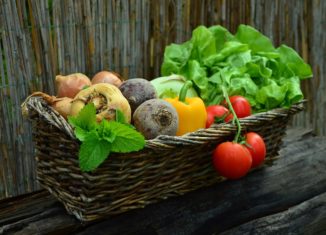
“Organic” is the term used to explain how agricultural products are grown and processed for public consumption. The crops are grown without synthetic herbicides, fertilizers, and pesticides when you say organic produce. They must not be bioengineered too.
Only Buy Organic Produce
The process that the food goes through, from growing to harvesting, can significantly impact you and the environment. Allergy sufferers who eat solely organic foods may discover their symptoms subside or disappear. But these are just some of the many benefits that one can enjoy with organic food.
- Have Less/No Pesticides. Traditional agriculture uses chemicals like synthetic fungicides, herbicides, and insecticides, that leave residues on food. They are proven harmful both to human health and the environment.
- Most Often Fresh. Organic food is frequently fresher due to the lack of preservatives used. The organic produce is grown on smaller farms near it is commonly marketed.
- GMO-Free. Generically engineered foods are plants whose DNA has been altered in methods that cannot occur naturally or through traditional crossbreeding. This is typically done to be pesticide-resistant or to produce an insecticide.
- Best for the Environment. Practices like organic farming can help minimize pollution and save water and energy. Farming without synthetic pesticides is better for birds, animals, and humans who live nearby.

Opt For Organic Farmed Meat
Organic livestock raised primarily for meat, eggs, or dairy, must be raised in natural habitats and only fed organic feed and forage. Antibiotics, growth hormones, and animal by-products are prohibited with organic livestock.
- Not Given Antibiotics or Growth Hormones. Using antibiotics and feeding livestock by-products raises the risk of mad cow disease. Also, organically farmed animals have a significantly larger room to move and access the outdoors. This keeps them healthier.
- Richer In Nutrients. When comparing organic and conventionally raised and farmed meat and dairy animals, the amounts of nutrients such as omega-3 fatty acids were shown to be more significant in the organic products.
How to Shop For Organic Items
It is expected for organic produce and meat to be more expensive than conventionally-produced food. Simply because of the process that it takes to make them organic. Still, it is feasible to eat organically while also staying within your food budget. This is where evaluating your priorities comes in.
- The Label Matters. Some products have higher pesticide levels than others. The most common are apples, celery, potatoes, kale, spinach, strawberries, grapes, tomatoes, and others. That is why for these products, it is best to get organic.
- Pesticide Levels. Some conventionally grown produce has a higher pesticide content than others and should be avoided as much as possible. Others are safe enough to buy non-organic. Still, it is best to get them organic to be 100% secure.
Where to Shop for Organic Food?
It is now easier to shop for organic food. You can do it locally or shop for them online. There are now local organic fruits and vegetable displays, while some grocery stores even have them in the produce section. You can also buy organic food online like Kirr Concept, which offers some of the best products that you need on your grocery list.
